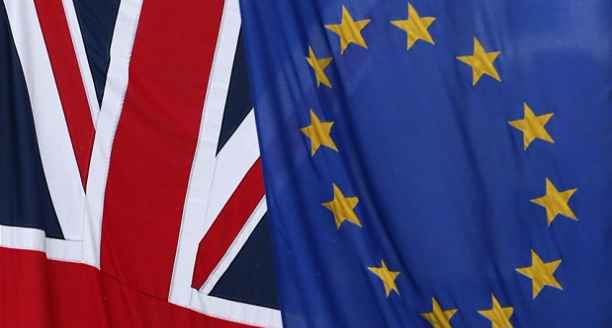
Britain’s upcoming referendum on European Union (EU) membership was a key point of discussion at this weekend’s Group of 7 (G7) meeting in Japan, where finance leaders from the advanced industrialized world came out in full support of Prime Minister David Cameron’s campaign to keep Britain in the 28-nation bloc. However, it is not just Brits and EU countries that will be impacted by Brexit, but nations throughout the Anglosphere that still have strong ties to the United Kingdom.
The Organisation for Economic Cooperation and Development (OECD) recently warned that Brexit would spell bad news for Australian businesses operating in Britain, which would invariably lose their passporting rights to Europe’s financial sector. As it currently stands, the passporting system gives Australian financial services companies operating in Britain access to 30 countries, including 27 other EU countries as well as three of the four members of the European Free Trade Association.
Australian foreign minister Julie Bishop has gone on record to state that it is in the interest of Australia for the UK to remain part of the EU.
“The EU is a significant partner for us,” she said. “A strong UK as part of the European Union would be in Australia’s interests.
Interestingly enough, there are approximately 87,000 Australians living in Britain who will be allowed to vote in the referendum on June 23.[1] Whether or not they agree with Ms. Bishop is a subject of great debate. Polls continue to show a neck-and-neck race between the “Leave” and “Remain” camps. The UK Telegraph’s poll of polls suggests that 51% of Britons are in favour of remaining part of the EU versus 49% who want to leave.[2]
Another subject of great debate is how British expats living in Europe would react to Brexit. Experts predict a mass exodus of British expats from the continent if voters back home vote to leave the 28-member bloc. The exodus is likely be triggered by fears about access to healthcare and pensions.[3] According to most observers, however, it would take more than two years for Britain to fully break from the EU.[4]
While it’s unlikely that Brits living in Australia would be directly impacted by a vote to quit the EU, it could impact future plans to move back to the UK or settle elsewhere in Europe. Australia is currently home to more than on million people who were born in the UK. Obviously for them, the June 23 referendum is of upmost importance.[5] This is magnified by the fact that most analysts are in agreement that Brexit would blunt UK growth, especially in the short-term. The OECD estimates that Britain’s GDP growth would shrink 3% if it leaves the EU. This is equivalent to about £2200 per year for UK households.[6]
For traders in both Australia and the UK, Brexit will have a significant impact on the financial markets. With only one month to go before the Brexit vote, investors have already entered into risk-off mode to protect against stock swings. According to Bloomberg, more than 76,000 options on the FTSE 100 Index changed hands each day through the end of last week, the most in six years. A measure of FTSE 100 volatility expectations has also surged nearly 40% since March, a sign that investors are beginning to prepare for the upcoming vote.[7]
Given that uncertainty is the bane of the financial markets, stocks are expected to face heavy volatility leading up to the June 23 referendum. The Brexit vote is also expected to create turbulence for the British pound, as investors look to increase their margins on British assets. Despite its recent uptrend, the pound-dollar exchange rate has experienced heavy volatility this year.
“In the event of an exit, I would worry about the global appetite for sterling assets,” Bill McQuaker, head of Henderson Global Investors, said in a report published in December. “The UK has a significant current account deficit, which needs to be financed by global capital flows. If there is a Brexit capital flows could weaken for some time. Sterling would almost certainly weaken.” [8]
There’s no way to predict what could happen should Britain opt to leave the EU. Analysts warn that one of the most immediate impacts could be contagion, as Brexit would embolden nationalist fronts throughout Europe to push for a referendum of their own. Further EU disintegration could place significant pressures on a global market that is reeling from weak economic growth, ineffective monetary policies and weak commodity prices.
[1] Latika Bourke (April 28, 2016). “Brexit: Australian businesses in UK could lose EU passporting rights, OECD warns.” The Sydney Morning Herald.
[2] Ashley Kirk and Michael Wilkinson (May 23, 2016). “EU referendum poll tracker and odds.” The Telegraph.
[3] Chris Graham (March 29, 2016). “Brexit ‘would trigger exodus of British expats from Europe’.” The Telegraph.
[4] Tom McTague (April 26, 2016). “EU trade deal after Brexit would take more than 2 years: UK MPs.” Politico.
[5] The Conversation (March 13, 2016). “What might a ‘Brexit’ mean for the Anglosphere – and Australia?”
[6] Latika Bourke (April 28, 2016). “Brexit: Australian businesses in UK could lose EU passporting rights, OECD warns.” The Sydney Morning Herald.
[7] Aleksandra Gjorgievska and Manisha Jha (May 22, 2016). “Brexit Spurs Torrent of Options Trading in Last Hedging Rush.” Bloomberg Markets.
[8] Cherry Reynard (Dec 29, 2015). “What Does Brexit mean for markets?” Fund Strategy


